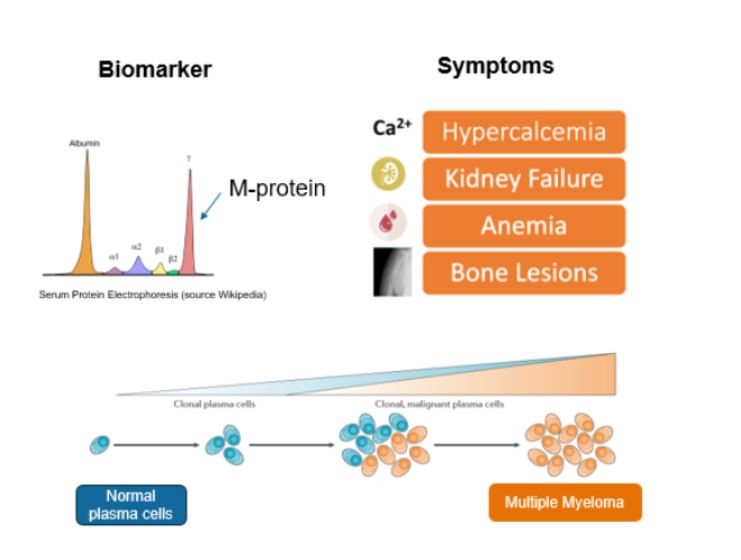Multiple Myeloma (MM) is a cancer affecting the plasma cells, impacting the body’s ability to produce antibodies to fight infections. The disease is incurable with high morbidity and is multisystemic, resulting in kidney failure, anemia, and bone lesions. The current clinical diagnostic for MM and earlier precursor conditions is a SPEP assay; this poses some challenges, as it is subject to human bias, is lengthy, and can be imprecise for those with precursor conditions. The goal of the Ghobrial Lab is to use more sensitive techniques to screen high-risk populations, namely first-degree relatives and those with African ancestry, for precursor conditions to increase transparency about their risk for developing disease. For my project, I analyzed samples from the PROMISE study, which screens high-risk individuals for disease progression to Smoldering Multiple Myeloma (SMM) or MM. The progression of MM is characterized by an increase in a monoclonal antibody called M-protein. I utilized highly sensitive techniques to screen these samples for monoclonal abnormalities, such as MALDI-TOF Mass Spectrometry and protein analysis through the Optilite Protein Analyzer and assigned diagnoses for these high-risk patients.
CaNCURE Research Presentation: https://youtu.be/fdPN9wTerZI




